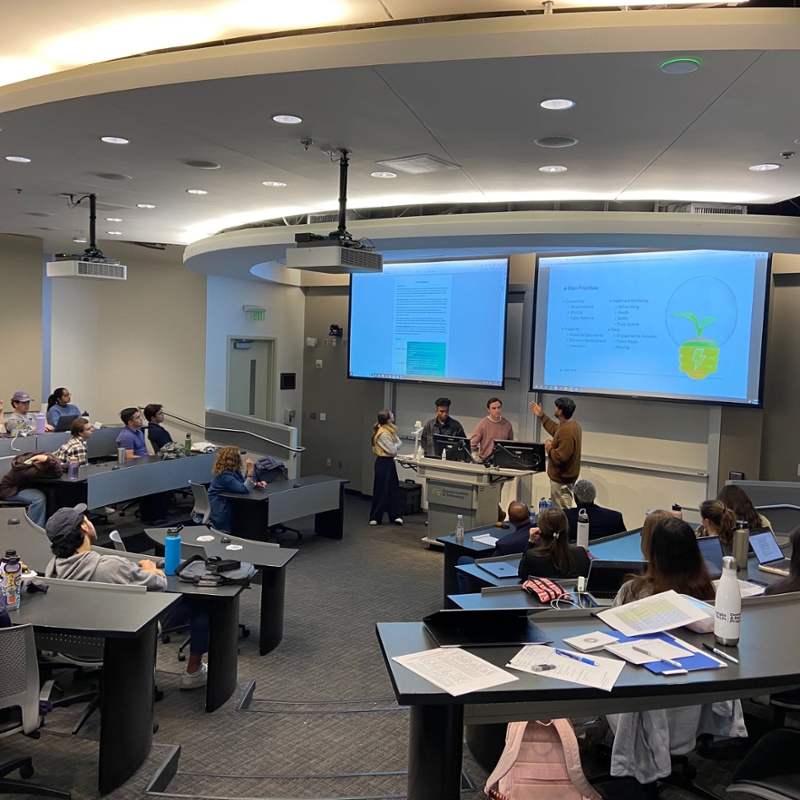Sustainability is coming to a course near you, thanks to support from the Ray C. Anderson Center for Sustainable Business (Center) at the Georgia Tech Scheller College of Business. An initiative known as the Faculty Educational Innovation Community, led by Professor Ravi Subramanian, provides support to faculty for implementing sustainability into their courses and pedagogy. The ultimate goal of the community is to serve students interested in acquiring sustainable business competencies in Scheller programs, from undergraduate to graduate and executive education.
In May 2022, Subramanian was tapped by the Center to serve as faculty director of educational innovation. Subramanian previously served as director of the Steven A. Denning Technology & Management Program and as a member of the Georgia Tech Undergraduate Curriculum Committee. He also has been closely involved in Scheller Executive Education. Center Faculty Director Beril Toktay said, “The role will be dedicated to enhancing education and the student experience. Ravi brings all the pieces that are so important to faculty leadership and to conceptualizing and realizing programs.”
Having a faculty member dedicated to curriculum innovation is central to the Center’s goal to create a community of practice around sustainability education – whether that means infusing sustainability into a current course or starting a new course. Toktay said, “We are inspired when we learn and hear from each other. I hope this community leads to creative intersections of ideas and people around educating with the UN Sustainable Development Goals [SDGs].”
The community creates potential for growing Scheller programming, such as developing executive education courses and building on the certificate in sustainable business to develop a minor.
In 2022, the first cohort of the Faculty Educational Innovation Community proposed enhancements to courses spanning various educational programs at Scheller. The enhancements were developed during Summer and Fall 2023. During Fall 2023, seven faculty received funding:
Reflecting on the first cycle of grant recipients, Subramanian states, “I am inspired by our faculty’s energy and commitment to embedding sustainability in diverse courses. Our grant recipients represent a comprehensive range of business disciplines.” Subramanian applauds the Scheller faculty’s passion for looking broadly at sustainable business, spanning environmental and social impact.
Grant recipient Niculescu, who is interested in IT sustainability problems at the intersection of hardware, software, and data, is grateful for the support to include a timely subject in his teaching. He states, “Given that electronic waste represents the largest growing waste stream in the world, ignoring IT sustainability is no longer an option, as it will have a compounding effect on future generations.” While the immediate impact of the Center’s program is on faculty and students, Niculescu believes the educational shift towards more sustainability content is essential for society. “These are issues in which we all have a vested interest,” he says.
In Spring 2024, the Center will invite applications from faculty who are interested in receiving support to infuse sustainability specifically into core MBA courses at Scheller.
Written by Jennifer Holley Lux
